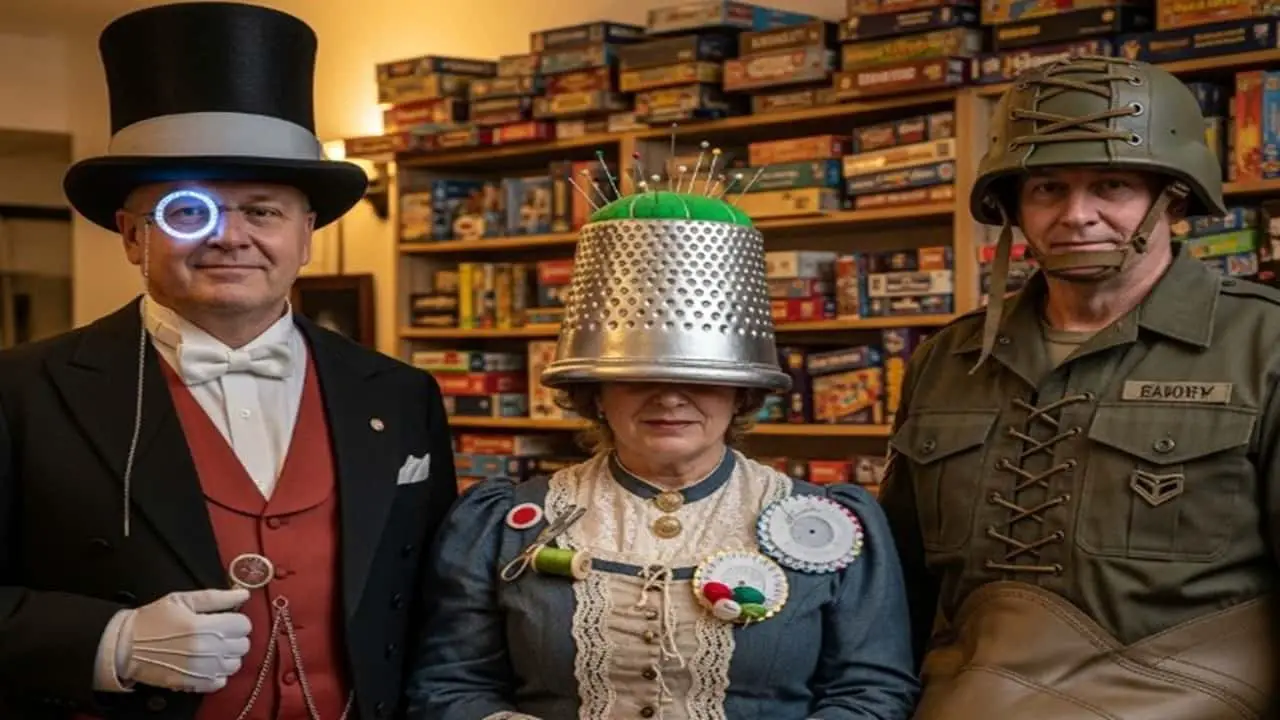A standard washing machine can run on solar energy and usually requires only one solar panel to power it. You’ll need a solar panel with a minimum capacity of 300 watts to power a standard-sized washing machine that consumes 300 to 500 kWh of energy.
However, it’s important to note that a solar panel produces DC current, while a washing machine requires AC current. Therefore, you’ll need an inverter to convert the DC current into usable AC current.
Key Takeaways
- To power your washing machine you need to install solar panels in an open space that receives ample sunlight.
- There are mainly two types of solar power systems for homes i.e., grid-tied and off-grid. Both types of solar power systems have their own benefits and drawbacks. Therefore, you should select the one that suits your needs.
- Use energy-efficient washers to get the maximum out of solar energy.
- You may need to install 3 or more solar panels with 300 watts capacity if the sunlight in your area is not very strong.
- Installing a high-capacity battery along with solar panels can help to store the solar energy for use at night or during a power outage.
- Solar Panel produces DC current so you will need an inverter to convert the DC current to AC current.
Table Of Content
- How does the solar system power the washing machine?
- How many solar panels are required to power a washing machine?
- How do solar batteries benefit washing machines?
- What are the advantages of using solar power to do laundry?
- What are the drawbacks to using solar power for laundry?
- What are the common types of solar power systems for laundry?
- Can you run a washing machine directly from solar panels?
- Is there a Solar Powered Washing Machine?
- Where can you install solar panels for laundry?
- Final Thoughts
- Frequently Asked Questions
How does the solar system power the washing machine?
Solar power is a clean and renewable source of energy, plus it is also very efficient as it directly saves energy costs.
Solar power systems are not only great for reducing energy costs in the home, but they can also act as backup power sources. Washing machines consume a lot of electricity and solar panels could be the solution to save on energy bills.
Solar power generates power by converting sunlight into electricity using photovoltaic (PV) cells or solar cells.
PV cells are usually made up of semiconductor materials like silicon and cadmium telluride, which absorb sunlight and create an electric field.
The electric field produces a current that is then fed into an inverter, which converts the DC current into an AC current that can be used to power your washing machine and other appliances.
Solar cells are usually combined together to form solar panels, and these panels are usually mounted on the roof of a home or building or on any open space, where they can maximize exposure to sunlight.
How many solar panels are required to power a washing machine?
A domestic washing machine typically uses anywhere between 1,500 and 2,500 watts of power at full swing and may only utilize 300 to 500 watts of power if you use the basic features.
So, if you are not using the water heating feature on your washing machine, then your washer is likely to utilize anywhere between 300 and 500 watts of power.
With that said, the power utilization may vary considerably depending on the brand of your washer and its type, i.e., Front-load, Top-load, semi-automatic, fully automatic, and so on.
So, if you want to use the washer in full swing without having to worry about energy limitations, you will need at least 6 solar panels with a capacity of 250 watts to power a 1500-watt washer.
However, if your washer has an A+++ energy rating, then you may only need 1 solar panel with a capacity of 300 watts to complete the wash cycle as they use less than 500 watts per hour.
The more efficient your washer is, the fewer solar panels you will need to power it.
Brands like Samsung, LG, and Whirlpool are well-known for manufacturing energy-efficient washers.
It’s recommended to go for energy-saving washers as it not only helps to cut down the cost of solar panels but otherwise as well.
That being said, most houses are not able to generate that much solar power, so a hybrid system is usually used.
In a hybrid system, the solar panels provide some of the power, and the rest comes from the grid itself.
In layman’s terms, you can use it as a combined power source to run the washer and other appliances.
Refer to the table below for the ideal number of solar panels needed to run a washing machine:
| Washing Machine watts | Number of Solar Panel panels required at 300 watts |
| 300 – 499 | 1 – 2 |
| 500 – 749 | 2 – 3 |
| 750 – 999 | 3 – 4 |
| 1000 – 1249 | 4 – 5 |
| 1250 – 1499 | 5 – 6 |
| 1500 and up | More than 6 |
As you can see, the number of solar panels increases as the wattage of the washing machine goes up.
So, if you have a high-wattage washing machine, then you will need more solar panels to run it.
How do solar batteries benefit washing machines?
If you are considering using solar batteries for laundry, you can benefit by sharing excess power stored in these batteries with other appliances.
Solar batteries are often used in conjunction with solar panels to create a complete solar power system.
These batteries can store surplus energy generated by solar panels on a sunny day, so you can use them at night or during gloomy weather.
The stored power can be used to run your washing machine as backup power during a grid outage and reduce your reliance on the grid for power.
This will not only help to complete your laundry but also save on your energy bills and physical efforts.
What are the advantages of using solar power to do laundry?
The main benefit of solar-powered systems is that they not only act as a backup power source but also offer an economical benefit in doing laundry.
There are other advantages to using solar-powered systems for your laundry as well, so let us take a quick look at some of them below.
Easy to install
Solar power systems are relatively easy to install. You can even do it yourself if you have some basic knowledge about electrical wiring.
Environment Friendly
Solar energy is a renewable resource, meaning it will never run out. It’s also clean energy, so it doesn’t produce harmful emissions as fossil fuels do.
Efficiency & Low maintenance
Solar power is also very efficient, as a typical solar panel can convert about 20% to 25% of the sunlight it receives into electricity.
Moreover, solar panels have no moving parts, so they require very little maintenance.
Reduced Energy bills
Using solar power alone or as a combined source to power your household appliances can help you save money on your energy bills.
Solar panels may balance your energy utilization, allowing you to rely less on your energy provider.
In fact, in some cases, you may even be able to sell excess power back to the grid.
What are the drawbacks to using solar power for laundry?
With all the advantages that solar power brings, it has some disadvantages as well.
Some of the disadvantages of a solar-powered laundry system are listed below.
High initial investment
Solar power systems require a high initial investment. The cost of solar panels, batteries, and other equipment can be quite expensive.
However, the long-term savings on your energy bills may offset the initial investment costs.
It’s important to note that the cost of solar panels has been dropping steadily over the years, making them more affordable.
Solar power is not available 24/7
Solar power is only available during the day when the sun is out. This means that you will need to use other power sources, such as batteries or the grid, to run your washing machine at night or on cloudy days.
Solar power can be unreliable
Solar power is a renewable resource, but it is still not 100% reliable. The output of solar panels can be affected by cloudy weather or dust.
It’s important to have a backup power source, such as batteries or the grid, to ensure that your washing machine can still run even when solar power is unavailable.
Not suitable for limited spaces
Installing solar panels requires a lot of space.
If you have limited space, such as an apartment, solar power may not be a suitable option for you.
Solar panels require a lot of space for installation, and if you are short on space, then this will not be an ideal choice for you.
Moreover, the panels need to be placed in an area where they will get the maximum exposure to direct sunlight, which is often not possible on every roof.
Space Occupancy
You can install them on a terrace but only lose out on the available space for something else you may plan for.
Not only the terrace, but the installation of multiple panels can also occupy large spaces in your yards, gardens, or any open space.
What are the common types of solar power systems for laundry?
Solar power systems come in two basic types, such as grid-tied and off-grid that can be used for laundry and as per requirements.
Grid-tied systems are connected to the electrical grid, so they can sell excess power back to the utility company.
Off-grid systems are not connected to the grid, so they must generate all of the power they need on their own.
Both types of solar power systems have their own benefits and drawbacks.
Grid-tied systems are less expensive to install, but they require a reliable electrical grid to function properly.
Off-grid systems are more expensive to install, but they’re not as reliable as the electrical grid.
The type of solar power system that is right for you will depend on your specific needs and situation.
You can simply contact a local solar panel installer to learn more about your options.
They will be able to guide you to find the most suitable type of solar system for your home.
Can you run a washing machine directly from solar panels?
It is not recommended to run a washing machine directly powered by solar panels.
Most household appliances run on AC (Alternative Current) power, including washing machines.
Solar panels supply DC power, which is the electricity that flows in one direction. It is the type of electricity that is ideal for batteries.
DC (Direct Current) power, if used directly from solar panels, can cause permanent damage to the electrical components of your washing machine.
In a home-based solar system, an inverter changes the DC power generated by the solar panels into alternating current (AC), which is the kind of electricity used in your home, including washing machines.
DC-rated appliances can run directly on solar panels, but you will need to check with the manufacturer of those electronic units.
Connecting Inverters to Washing Machines
- Within a solar-powered system, the inverter plays a pivotal role by transforming the DC power generated by solar panels into AC power compatible with household devices, including washing machines.
- Subsequently, the AC power produced by the inverter can be seamlessly linked to the washing machine via conventional electrical wiring.
Impact of Solar Panel Orientation and Location on Efficiency
Orientation
The orientation of solar panels affects their exposure to sunlight and, consequently, their efficiency.
Panels facing south in the northern hemisphere or north in the southern hemisphere generally receive the most sunlight.
Panels tilted at an angle close to the latitude of the location can optimize energy capture throughout the year.
Location
Solar panels installed in areas with ample sunlight exposure will generate more electricity.
Shading from buildings, trees, or other obstructions can significantly reduce panel efficiency.
Panels should be positioned where they receive maximum direct sunlight without obstructions.
Tilt Angle
The tilt angle of panels affects their efficiency during different seasons.
Adjusting the tilt to match the sun’s angle during different times of the year optimizes energy generation.
Is there a solar-powered washing machine?
Solar-powered washing machines are quite popular in India and are sold on a retail network.
Most countries have the option to order them using online platforms and will get them delivered by the manufacturer.
These washing machines have a smaller capacity and use less energy than regular washers. This makes them a perfect fit for working with limited solar power or a small setup.
While solar power can be used to run washing machines, it is not as easy as connecting the machine to a solar panel.
Solar-powered washing machines work by using a special inverter that converts the DC power from the solar panels into AC power that can be used by the washing machine.
The inverter must be specifically designed for use with washing machines and may not be available for all models.
In addition, solar-powered washing machines typically require more maintenance than traditional models and may have shorter lifespans.
Where can you install solar panels for laundry?
For installing solar panels for laundry, the ideal spaces can be a terrace, rooftop, garden area, and yard, and if you own a caravan, you can install it over them.
Before installing solar panels for laundry, there are a few things to keep in mind.
- Determine the right number of solar panels required to power your washing machine with the help of a professional.
- Determine the size of the solar panel system you require, as panel sizes and the number of panels required may vary. This will again depend on your energy needs and how much sun exposure your property gets.
- To install the solar panels successfully, you’ll need to choose a bright place on your property with enough sun exposure.
- Mounting can be done on the ground or you can choose rooftop installation. Ground-mount systems are usually more expensive, but they offer more flexibility in terms of where they can be placed on your property. Rooftop installations are less expensive, but they can be more difficult to install.
- You’ll want to ensure that the panels are installed on a sturdy surface that can support their weight.
Once you have figured out the above factors, you can research different types of solar panel systems and find one that best suits your laundry needs.
Final Thoughts
Before you install a solar panel, make sure that you identify the right location to place it.
Ideally, the panels should be placed in an area where there is direct sunlight for most of the day.
And most importantly, always make sure to calculate the power consumption of your washer before deciding to get a solar panel.
If in doubt, always consult a professional to calculate and shortlist a suitable solar power system for your washing machine.
Lastly, the more energy efficient your washer is, the less power it will require from the solar panel.
So, it’s always a good thing to have an A+++ power-rated washer at home.
Frequently Asked Questions
Do I need a battery for my washer’s solar panels?
In order to store the excess energy, you will need a battery and an inverter to convert the DC current to AC current. Without solar batteries, you will not be able to store that excess energy and you will have to rely on the grid.
Which solar system is best for my semi-automatic washing machine?
Contact a local solar panel installer to learn more about your options and find out which type of system is best for your washing machine and home.
Can I use solar power in a caravan for my laundry?
Installing a solar-powered washer in a caravan is a great way to make your stay or travel energy efficient. This way, you can perform your regular laundry in your RV without having to worry about the power supply. For installing a solar-powered washer in a caravan, you can simply contact the nearest solar system dealer.
You May Also Like
- Can Washing Machine Run on Inverter Power?
- Can You Run A Washing Machine On A Generator?
- How to Calculate Washing Machine Capacity? (With formula)
- How much water does a washing machine use?
- What’s the Average Height of a Washing Machine?
- Average Washing Machine Weight (with examples)
- Why Does the Washer Turn Off Automatically?
- Do ozone laundry systems work? (Explained)
- How To Use a Scrubba Portable Clothes Washing Bag?
- How To Replace The Power Cord In A Washing Machine?
- How High Do You Mount The Washing Machine Outlet Box?
- Where to Find the Model Number On Washing Machine?
- 3 Compartments in the Washing Machine Drawer (Explained)
- What does ZPF Technology mean in a Washing Machine?





